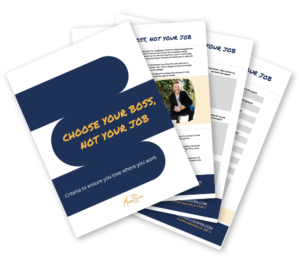The Job Skills Mismatch
April 4, 2012
It is no secret that the unemployment rate has remained high during the recession and the recovery because of a mismatch between the jobs needed for the 21st century and the 20th century skills currently available in the workforce. There are a variety of events occurring that are fostering change, but the change is occurring at too slow a pace. As our economy continues its’ growth out of the consumption/housing-led boom from the last decade and moves into an economy based on higher levels of knowledge, three entities will have to work together to make the change occur at a more rapid pace.
Using Germany, post unification, as our template, we learned that it might take up to ten years to truly get back to a place of prosperity after a recession. Other estimates, by McKinsey, state that the timeline is more likely to be five years from the time the recession began. Whatever transpires, we’ll need to work together and share resources much more openly than we have been to allow our nation to meet President Obama’s goal of doubling exports in the next decade. The war for talent is only going to get more severe as much of the “high-end” talent has already been reabsorbed back into the workforce. Because the recession completely altered the labor pool, as we know it, interested parties must work together to educate the unemployed and lessen the unemployment rate.
How can they do that?
Assuming that the three major players are the business community, the education sector, and the individual, each will have to work together to employ the meaningful strategies. Here is what each can do to start the turnaround.
Business – Regardless of size, business needs to stop cutting funding of training and development programs. Continually shifting the cost of skill development to the individual and public sector is not sustainable long-term. Investing more money in its labor pool will help to lessen the blow of turnover, which can cost 150%+ of an employee’s salary, and foster engagement with employees, thereby driving higher levels of productivity (I found a study that showed this drove over 14% more revenue per employee to the top line). Another step would be accepting that in order to attract qualified applicants, wages are going to need to increase. Enticing strong applicants with sign-on bonuses, extra vacation days, flexible scheduling, more autonomy, etc. will help to ensure that a workforce will be available when needed.
Education – I use the term education to encompass K-12 schools, public universities, private education, and non-business organizations that provide training and skill development. From the start, there needs to be a very sincere focus on STEM (science, technology, engineering, and math) skill development and on emotional competence. Technology has forced younger generations to not have as much experience in understanding non-verbal communications, resolving conflict, listening actively, and a strong work ethic. Pairing a different approach to soft skills with a lack of education on STEM skills has put higher education on the spot to try and develop those who choose to attend college (roughly 70% of high school graduates) quickly. Education institutions at all levels need to find ways of reform to provide knowledge cheaper and focus less on practices that don’t allow students to find and begin working in their career passion sooner.
Individual – Whether unemployed or employed, the individual can contribute to the equation by learning continually. In order to keep up with individuals in developing economies, people in the States will have to garner access to resources that allow them to learn, unlearn, and relearn quickly. Establishing a strong worth ethic will be paramount to learning a chosen STEM skill and being able to mold and apply it as one changes jobs along a career journey. The web and massive open online courses (MOOC) are ways that individuals can learn volumes of information and not have to incur significant amounts of debt. Establishing a strong network will help tremendously to provide ideas, knowledge, and access to businesses as they navigate change.
If the three players decide to sit down and begin frank and open dialogue about win-win solutions, America has a chance to meet Obama’s goal. If the three parties continue to operate in silos, we can expect the job-skills mismatch to continue. The lack of synergy may create more student debt, stagnant unemployment, and businesses not operating at full capacity.
It seems to me that it is time to set ego and the profit motive aside and focus on the triple bottom line. If we don’t, we can expect to fall to number two on the list of the world’s largest economies, being supplanted by China, much faster than economists have previously predicted.
Share This!
Subscribe to newsletter
Keep up to date on the latest.






Connect with me